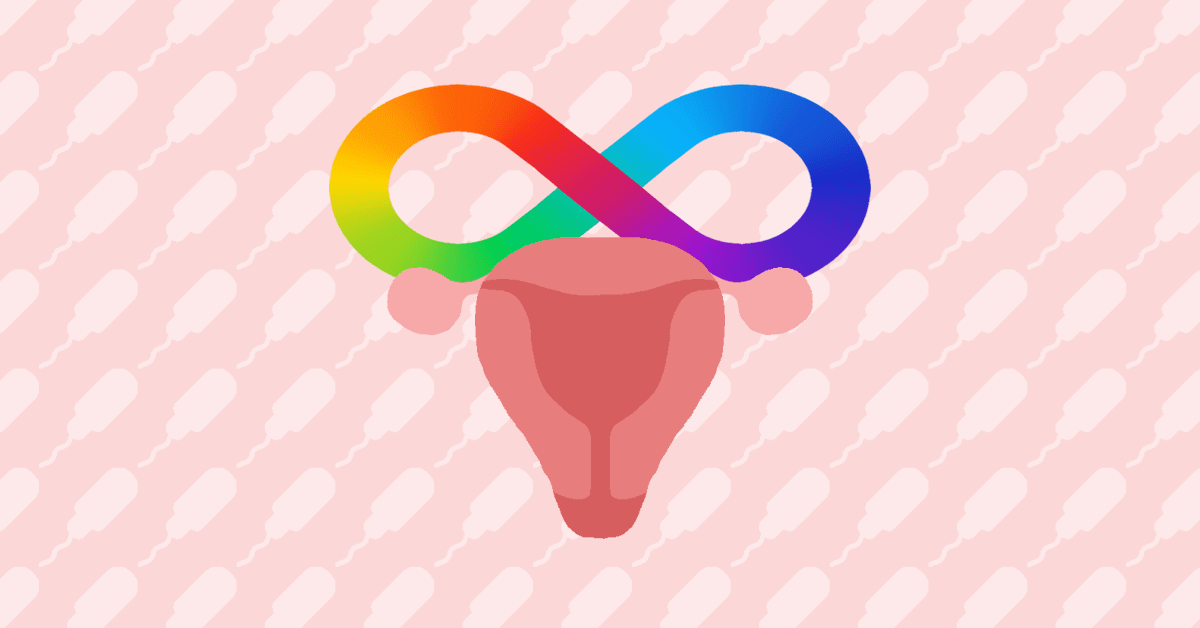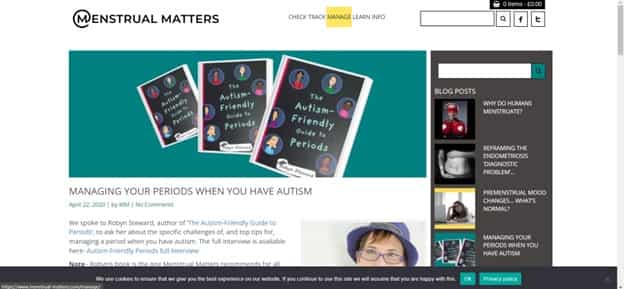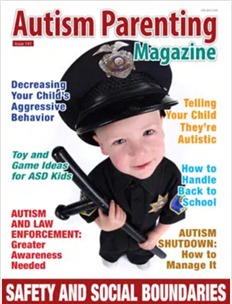
An Adventure into Autism and Periods: Why is it like this?
I recently had a meltdown at American Family Field during the second inning. I saw a poster that the Student Union Board was advertising tickets to the game, and I thought it’d be a fun thing to do with my roommates, and they agreed. The last game I went to was two years ago in May ’21 on Senior Skip Day. I had a fun time then, so I thought I’d be fine at this outing.
But things stacked up on top of each other, then kept stacking up and suddenly there were too many thoughts to comfortably fit inside my head. I walked out of the stadium without telling my roommates or looking at anyone, really. As soon as I pushed the exit doors open, the slow drip of a faucet not turned off all the way became the eruption of a dam, complete with exaggerated breathing.
I rarely have meltdowns, and I’m grateful for that. But it doesn’t make it any less distressing when I do have them. And the worst part about having a meltdown in my experience, is that it almost always happens to me just before I’m supposed to get my period. And it always makes me so frustrated afterwards!
It makes me feel like all my autistic experiences become invalid because I had a meltdown just before my period, and that any emotions and feelings I had at the time aren’t meaningful because it’s ‘that time of the month.’ Everything felt so strongly in the moment, but some cultural bias has got to be making me feel this way.
Holy crap—someone did research on this!
I’m not the first person to experience this – the exacerbation of autism-related challenges during menstruation. The Center for Research in Autism and Education at University College London did a study in 2018 that obtained scientific data regarding this comeuppance. They noted that 24 of the 26 autistic women they sampled met the criteria for premenstrual dysphoric disorder (PMDD) as opposed to only four of the 36 non-autistic women sampled [2].
For the uninitiated, premenstrual syndrome (PMS) is a set of symptoms that people experience a couple days before their period and sometimes overlaps with their period. Common symptoms include “mood swings, tender breasts, food cravings, fatigue, irritability, and depression” [3]. And apparently three in four women have experienced some sort of PMS.
However, PMDD is like PMS but worse. It takes the depression, anxiety, moodiness, and irritability and dials it up to 10 [4]. And of course, nobody knows why, and not all medications work for everyone. The Mayo Clinic claims “it’s possible that that the hormonal changes that trigger a menstrual period worsen the symptoms of mood disorders.” [4]. It doesn’t seem like a stretch to me to say that the hormonal changes can also worsen autism ‘symptoms.’
I’m kind of fascinated by and loved reading what my fellow autistic menstruaters had to say in the survey. I like the way this one participant explained it: “Autism does play a role. It can become much more overwhelming and harder to maintain control of the things that already take a lot of effort for us to keep on top of, during a period.” [2].
Many of the autistic participants noted a worsening of difficulties regulating emotions and behavior during their period. Which I can totally agree with. Partly because I already have trouble recognizing and understanding my emotions, and just existing during my period makes me even more aware that I am on the spectrum.
A small foray into autism and gender
Now, I know that the National Autistic Society is a pretty scheiße organization (see why here), but I do like that in this article I found, they addressed the issue of gender identity and menstruation. The author of that article, Robyn Steward wrote that “gender is a key part of one’s identity, just as autism is” [6]. Which I feel is very accurate. She notes that many autistic people have queer gender identities; this is clear to me, at least, because I’ve been on Tumblr for a decade. Most people I see on there are some sort of queer and autistic.
Sidebar- I went to Robyn’s website to see if she had specific pronouns anywhere and the website is kinda garbage. Makes the UXer in me cringe in disgust.

I can’t comment on everything because that would take over this article. But she tells you to click the accessibility button in the top right corner to get accessibility tools, has an icon next to that (that you can’t click on). Then the actual accessibility button shows the finger selection thing like you can click on it, but it doesn’t do anything.
I hope to write about autism and gender identity in the future, but I’ll briefly touch on the subject while we’re here. I’ve seen quite a few users on Tumblr who identify (at least a little) as autigender: “when a person perceives that their experience of gender is influenced by their autism” [7].
Autism and menarches
What I did notice as I’ve been researching this topic, is that a lot of resources about coping with menstruating and being autistic are aimed at girls at their menarche (big fancy word that means ‘first period’). What’s going to happen, challenges you might face, how to prepare. Which are all good things to teach pubescent kids.
The CRAE study does mention that the participants pushed the need to educate young people more about periods here and there. Which I can understand. It’s important, but there’s LOTS of other good findings there. However, half the damn NAS article was on how to teach young people about periods. I did some more snooping (meaning looking at the fifth result on Google lol) and found an article by Menstrual Matters about managing your period when you have autism [5].
Sidebar – the Menstrual Matters website is also kinda suspicious. Not as god-awful as Ms. Steward’s, but still not good.

What is this header. Why are there two search bars. Why are the icons next to the search bar in the header not aligned to the search box.
The title of the Menstrual Matters’ article led me to believe it would offer tips on how to manage your period when you have autism. Like, as an adult person who has a period. Because the majority of people who menstruate are adults. But the whole article is just an overview of a book with comments from an interview with the author.
Who is this author? Robyn Steward. She returns! The book’s called “The Autism-Friendly Guide to Periods” and is “a detailed guide for young people aged 9 to 16 [1]. SMH my head. I have to give credit, that what’s written in the book does give helpful advice that can be applied to people of all ages. But why the focus just on the menarche?
Sidebar – the link to the book from the Menstrual Matters website brought me to the UK Amazon listing for the book. So Amazon needed a popup to tell me that they can ship to the US. And also felt the need to take up HALF my SCREEN with a popup about my cookie preference! I was just in disbelief.

I can barely see the damn listing—what I clicked the link to do!
The focus on the parents of autistic children appears yet again
This reminds me all too much of the problem with the majority of resources for autistic people. That its only information regarding children. Autism comes in all ages. You don’t just stop being autistic after you turn 13. I know that there’s a growing list of great organizations that provide resources for all ages of autistic people, and that’s great! But I was disappointed in the top results on Google when I searched “autism and periods.”
Here's the list.
- National Autistic Society (the article I already complained about)
- “Autistic children: preparing for periods” –from an Australian parenting website
- The great CRAE study that does touch about teaching young people about periods
- An actually pretty OK website/blog that focuses mostly on preparing autistic girls for their period. And guess what – quotes Robyn Steward’s book.
- The Menstrual Matters website (that quotes Robyn Steward’s book and offers no other information)
- Something about your daughter with autism having a period—from a website called Autism Parenting Magazine
- An article on that same website about how to help your autistic child prepare for their period—written by guess who? Robyn Steward.
- “Why Has Our Daughter Become Violent? - Autism Speaks” – No commentary can accurately convey how I feel about that article title
- And the last result on the first page of google – “How do I prepare a girl with autism for menstruation?”
Look at this cover for their magazine:

If I don't laugh at this, I'll cry
Also, google plugs Ms. Steward’s book on the righthand side of the search results. I just can’t get away from this woman.
What’s up with the UK and Robyn Steward?!
One thing I noticed as I made that list is that aside from the Australian website and Autism Speaks, all the articles on the first page of google are based in the UK. This is interesting! I don’t have any compelling thoughts as to why this is the case.
However, I do have some compelling thoughts about the monopoly of information that Robyn Steward has over autism and periods. And the UK at large, evidently. I recently saw J.J. McCullough’s video about Wikipedia and the problem with its monopoly on information. Not that Robyn Steward is evil in any way, but, like; only having one source available for a broad topic like autism and periods, it just doesn’t sit right with me.
I have original thoughts (and you should too)
I feel like a couple of the articles I looked at were just a regurgitation of Robyn’s book. And I don’t like that. When I sit down to write an article, I try to look at multiple sources when I do my research. So that I can do some synthesis. So I can bring my own opinions into the affair and try to bring something new to the table.
I seem to get the idea that that was the goal of finding our “personal monopoly” like the assignment was for my TC 2010 class. Bring something new to the table – find your niche. I guess Robyn found her niche—being the only source on Google on autism and periods. But what about the other websites that just parroted the same information between them? I’m not a fan.
To try and provide this article with some sense of closure: being autistic presents daily challenges. Menstruation presents challenges. Having these two afflictions be present at the same time makes everything worse. And to make the worse worse, there’s little to no resources for autistic people older than the age of 16 on how to cope with their periods.
Sources and other links
[1] Autism Period Book link that doesn't work in my html editor
[2] Centre for Research in Autism and Education (CRAE) Journal Article https://www.ncbi.nlm.nih.gov/pmc/articles/PMC6223765/
[3] Mayo Clinic PMDD https://www.mayoclinic.org/diseases-conditions/premenstrual-syndrome/expert-answers/pmdd/faq-20058315
[4] Mayo Clinic PMS https://www.mayoclinic.org/diseases-conditions/premenstrual-syndrome/symptoms-causes/syc-20376780
[5] Menstrual Matters https://www.menstrual-matters.com/autism/
[6] National Autistic Society https://www.autism.org.uk/advice-and-guidance/professional-practice/menstruation
[7] Queer Undefined https://www.queerundefined.com/search/autigender